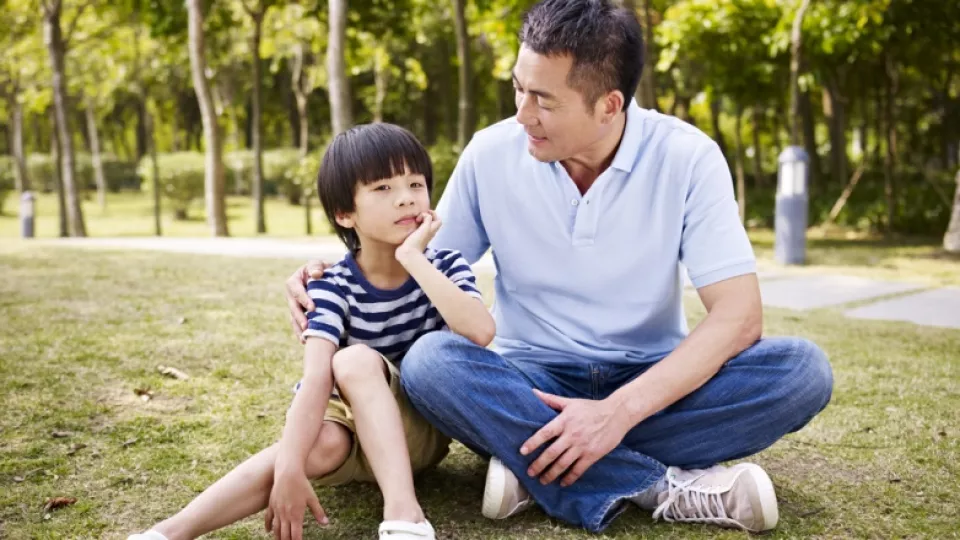
How to Talk to Your Child About Cancer in a Loved One
It is estimated that close to 1.7 million people will be newly diagnosed with cancer in 2017. Cancer is currently the second leading cause of death. Based on these two facts, there is a good chance that someone close to your child will be diagnosed and treated for cancer. But many parents often wonder how best to talk to a child about a cancer diagnosis in a loved one. What is the right information to provide without scaring or worrying a child? What is the best way for children to maintain a relationship with a loved one who is going through cancer treatment?
Many parents feel they are protecting their child if they don’t tell them about a loved one’s illness. The most important rule is never to lie or withhold the diagnosis from a child. Children are very perceptive and will know something is wrong. If information is not provided to them they may develop an inaccurate understanding of what is wrong, even somehow blaming themselves. How you tell children and how much information you provide depends upon their age.
All children need to know the following:
- The part of the body where the cancer is located
- How it will be treated
- How their own lives will be affected
Other information is best presented based upon their developmental level.
Infant to 3 years:
- Use simplified words. Children this age cannot understand the concept of cancer. Use words like sick, but don’t avoid the word “cancer” or the name of the tumor.
- Be factual, but use simple terminology.
- Example: “Uncle Tommy is sick. He has cancer that is called lymphoma. It is making him feel bad, but there are very good doctors taking care of him.”
Ages 3 to 7:
- Use simplified words to explain the diagnosis. For example: “Cancer is a bunch of sick cells that grow too fast.”
- Reassure children that they are not responsible for the cancer—even if they don’t ask.
Ages 7 to 12:
- Kids this age are capable of understanding a more detailed explanation of cancer and its treatment.
- Be aware they may hear messages about cancer from other sources (school, friends).
- Encourage them to talk to you if they have questions.
- Example: “Uncle Tommy has lymphoma. It’s a type of cancer that causes sick cells to grow fast. He will have to undergo a series of chemotherapy treatments.”
Teenagers:
- Teens can understand a more complex explanation of cancer and may have many questions.
- They will be most worried about how treatment will affect their daily life: school, sports and friends.
- Depending upon the relationship, teens may want to be part of treatment decision-making.
- They are old enough to have an active role in supporting the loved one.
- Example: “Uncle Tommy was just diagnosed with lymphoma and will need to undergo a series of chemotherapy treatments. If you’re up for it, we can visit him or provide support.”
General tips
- Plan what you’re going to say to your child. Write it down and practice if necessary.
- Use a calm and reassuring voice when talking with the child.
- It may be helpful to plan on having another person with you when you talk to your child. This may be another family member or member of the treatment team.
- Be open and honest with children and encourage them to ask questions.
- Share your feelings and encourage them to share their feelings as well.
- Try to maintain a routine for the child and the rest of the family.
- Normalize their feelings.
- Reassure children that they did not cause the cancer and that cancer is not contagious.
- Encourage children to find a way to stay connected to their loved one. This can be through technology or letters and cards when visits in person are not possible.
- Seek support for both you and your children.
As a parent, talking to kids about a cancer diagnosis can be overwhelming. Be sure to reach out to the treatment team to learn of support services available to you.


